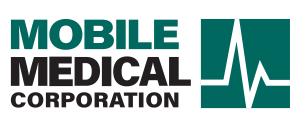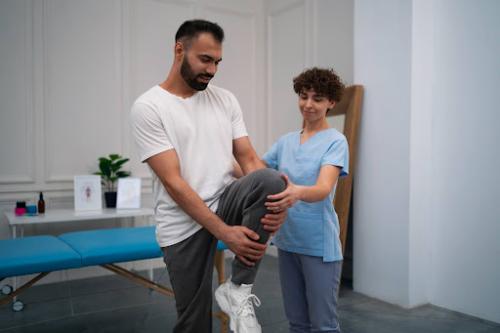The role of an athletic trainer cannot be understated in the construction industry, where physical demands are high and safety is paramount. These skilled professionals ensure that industrial athletes stay healthy and injury-free as they perform their daily duties.
Today, we sit down with Stetson B., an athletic trainer who works on-site at a construction project. Keep reading to learn more about his daily routine and what challenges (and solutions) come with the position.
What is the most rewarding part of your job as an athletic trainer?
The most rewarding part of my job is seeing my direct impact on industrial athletes' health and well-being. Knowing that I can prevent injuries, help someone recover faster, or simply provide advice that makes their day easier motivates me.
How do you build relationships with industrial athletes?
I focus on listening and being present. Industrial athletes face demanding physical tasks every day, so I make sure to engage with them not just when they're injured but also during downtime. Trust is built by showing you care—even if it's just through casual conversation during stretches!
Walk us through a typical day as an athletic trainer.
My day usually starts early with a walkthrough of the site to check in with workers. I then lead a 10-minute stretch session to promote injury prevention and share a bit of wisdom or humor.
Throughout the day, I evaluate and treat any strains, sprains, or injuries that might occur. I also conduct ergonomic assessments, provide recommendations, and collaborate with site managers on improving overall safety.
What are your main responsibilities as an athletic trainer?
My main responsibilities include injury prevention and treatment, stretching and mobility programs, on-the-spot first aid and evaluation, documentation and follow-ups, and educating industrial athletes on health and recovery.
How do you collaborate with other groups on-site, like safety teams or referrals?
I often work with the site's safety team to identify areas where workers may be at higher risk of injury. Collaboration is key to a safe working environment!
What does a successful day look like to you?
A successful day is when no major injuries occur, and all industrial athletes are engaged during the sessions.
How did you get into the field of athletic training?
While going through basic training in the Army, I realized I wanted to work in healthcare and help people stay active. I started with coaching smaller fitness classes and then went on to personal training.
Athletic training felt like the perfect mix of sports, medicine, and hands-on care. Transitioning into the occupational health side of things allowed me to make a difference in a setting where physical well-being directly impacts productivity.
What advice would you give to someone looking to get into the occupational health field?
Don't underestimate the power of empathy and communication! Technical skills are important, but being approachable and trustworthy is what will set you apart in this field. Learn to meet people where they are!
What is a new skill you have learned since taking on this role with MMC?
I've developed my public speaking skills by leading daily stretch sessions. I used to feel nervous about speaking to groups, but now I enjoy it!
What do you look forward to the most when you come to work each day?
The interaction with industrial athletes. Construction is hard work, and I admire the grit these workers have. It feels good to contribute to their well-being and keep them in the best shape possible.
What is the most important lesson you've learned from working with the MMC On-Site Medical Team?
It takes constant collaboration and communication!
What is your proudest professional accomplishment?
I overcame intense nervousness about public speaking. I had to retake a public speaking class four times in college. Now, leading stretch sessions in front of a whole crew is second nature!
Where do you think you have the biggest impact in your role as an athletic trainer?
I think I make the biggest impact by preventing injuries before they happen. Whether it's through education, proper stretching, or small ergonomic adjustments, I like to think I'm playing a critical role in worker safety.
Power Employee Performance with MMC
Looking to improve workplace health? We proudly offer athletic training services to several industries. Contact MMC today to learn more about how we can make a difference for you and your team!



